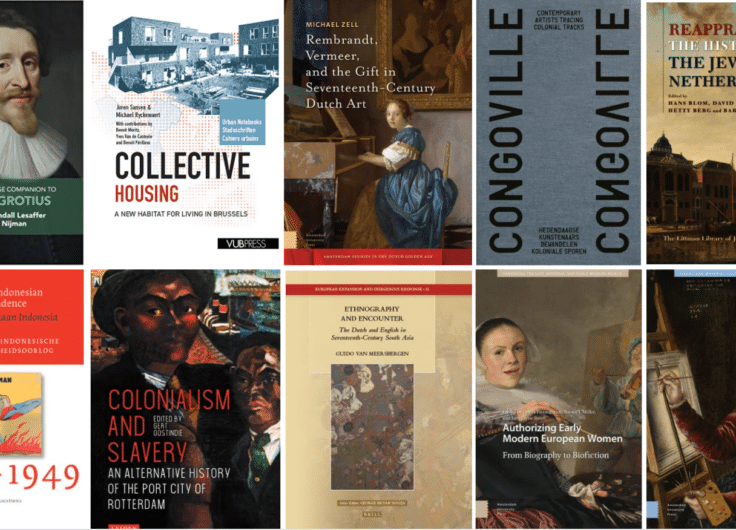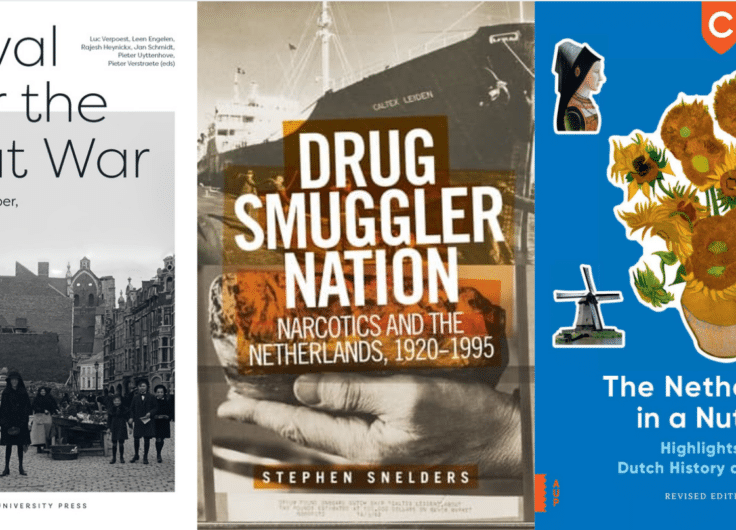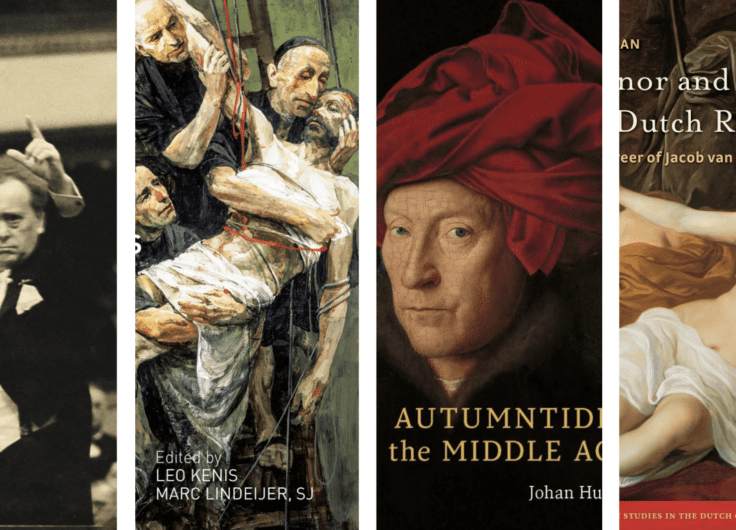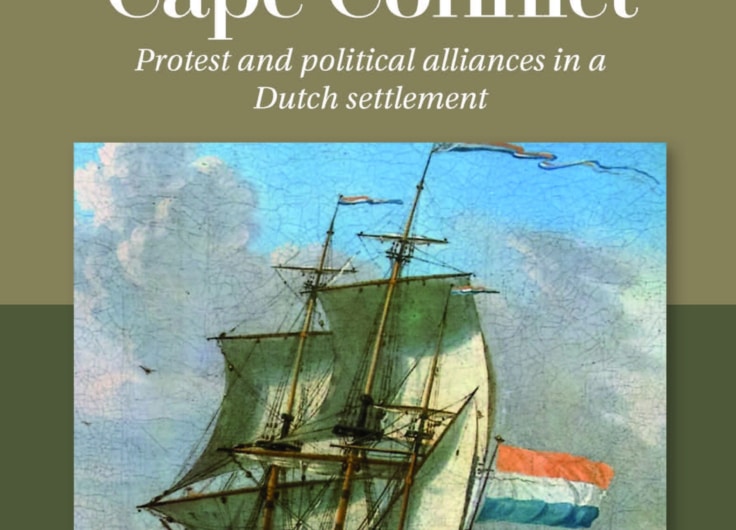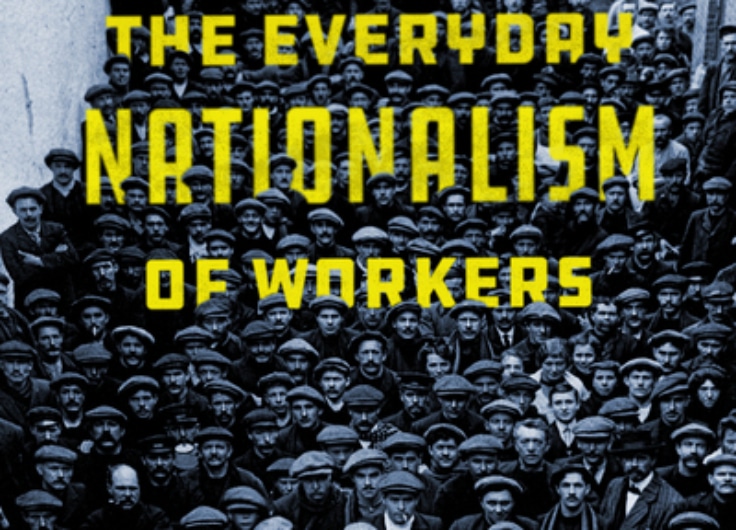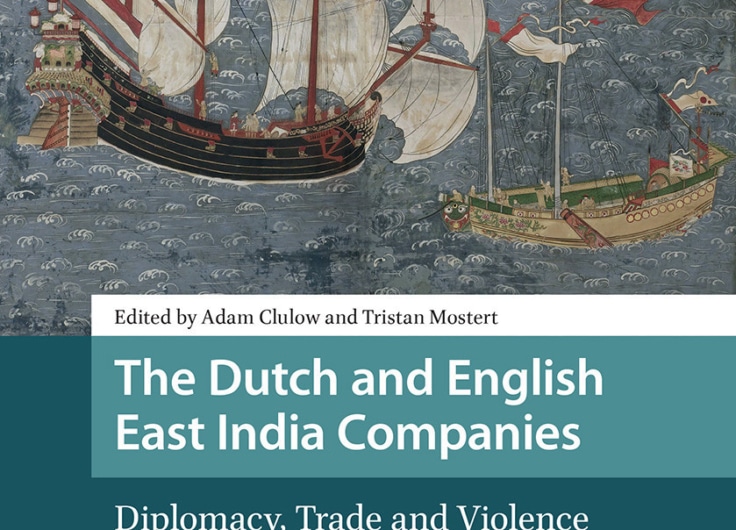Harvest of the University Press (autumn/winter 2022-3)
Universities all over the world publish academic monographs and scientific journals on the Low Countries that deserve wider attention. In this article, we present you with a selection of recent university press publications in English.
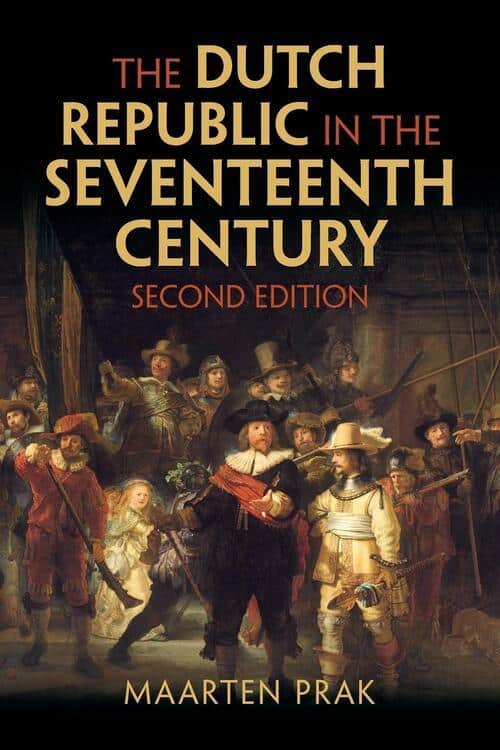
The Dutch Republic in the Seventeenth Century (2nd edition)
Maarten Prak
Rembrandt, Hals and Vermeer are still household names, even though they died over three hundred years ago. In their lifetimes they witnessed the extraordinary consolidation of the newly independent Dutch Republic and its emergence as one of the richest nations on earth. As one contemporary wrote in 1673: the Dutch were ‘the envy of some, the fear of others, and the wonder of all their neighbours’.
During the Dutch Golden Age, the arts blossomed and the country became a haven of religious tolerance. However, despite being self-proclaimed champions of freedom, the Dutch conquered communities in America, Africa and Asia and were heavily involved in both slavery and the slave trade on three continents.
This substantially revised second edition of the leading textbook on the Dutch Republic includes a new chapter exploring slavery and its legacy, as well as a new chapter on language and literature.
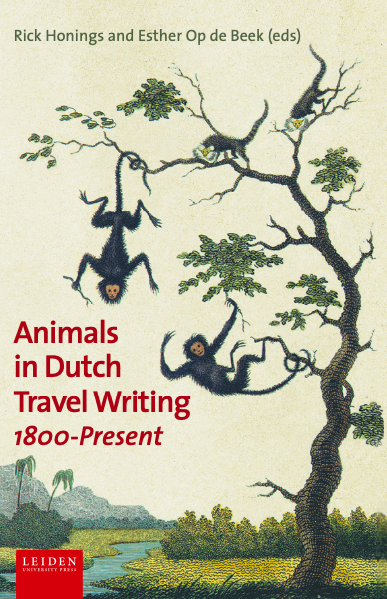
Animals in Dutch Travel Writing, 1800-present
Rick Honings, Esther Op de Beek (eds.)
Apart from humans, animals play a pivotal role in travel literature. However, the way they are represented in texts can vary from living companions to metaphorical entities. Existing studies mainly focus on the representation of conventional or unconventional roles that are assigned to animals from around the Napoleonic age until now, roles that have been subject to change and that tell us a lot about human reflections on encounters with non-human creatures and the position of man in this rapidly changing world.
In this edited volume, scholars from the Netherlands and abroad analyse the roles that animals play in Dutch travel literature from 1800 to the present. In this way, we aim to provide new insights into the relationships between man and animals, in textual expressions and real life, and to add the ‘Dutch case’ to the flourishing international field of travel writing studies.
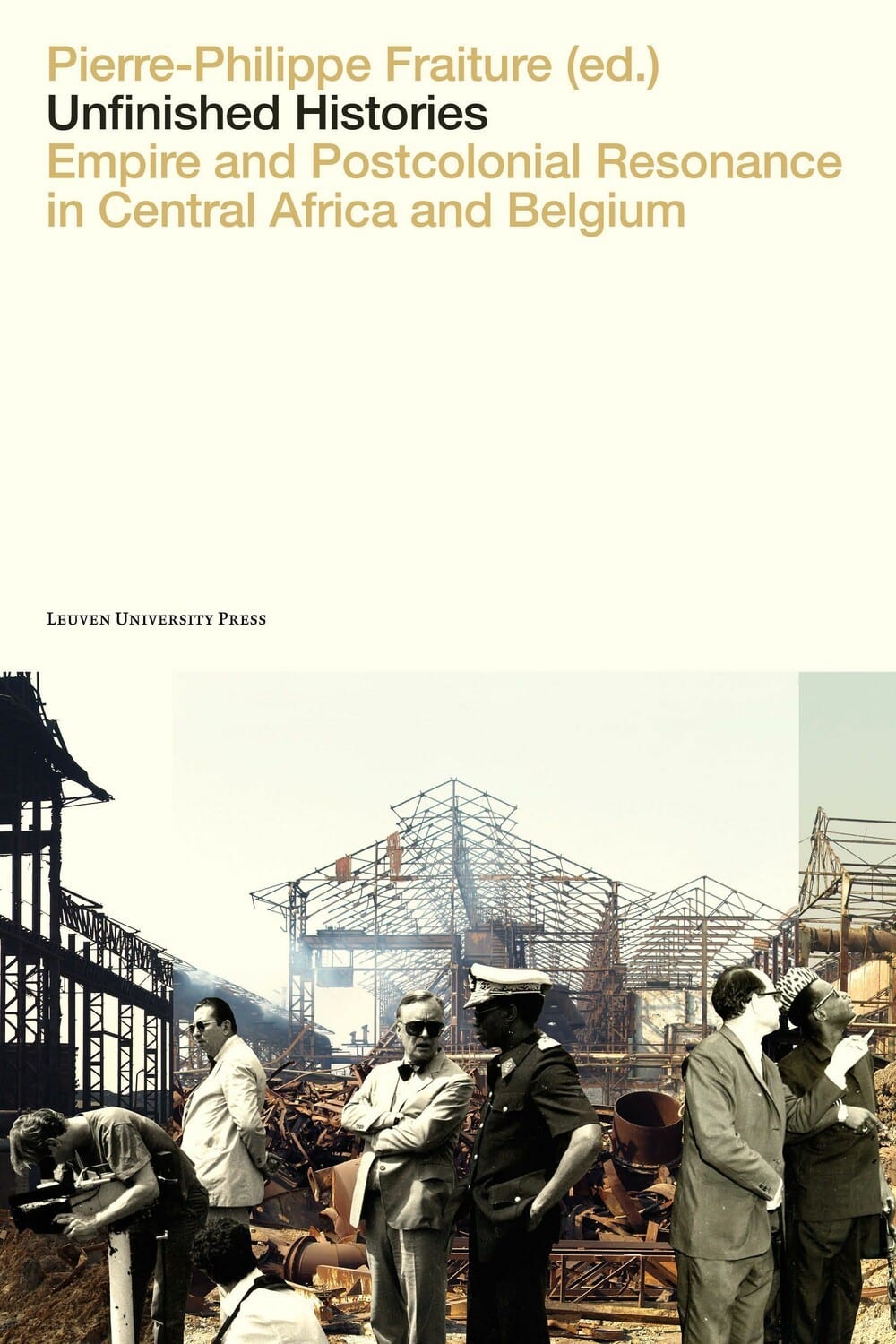
Unfinished Histories – Empire and Postcolonial Resonance in Central Africa and Belgium
Pierre-Philippe Fraiture (ed.)
Belgian colonialism was short-lived but left significant traces that are still felt in the twenty-first century. This book explores how the imperial past has lived on in Belgium, but also in the Democratic Republic of the Congo, Rwanda and Burundi. The contributing authors approach colonial legacies from an interdisciplinary perspective and examine how literature, politics, the arts, the press, cinema, museal practices, architecture, and language policies – but also justice and ethics – have been used to critically revisit this period of African and European history.
Whilst engaging with significant figures such as Sammy Baloji, Chokri Ben Chikha, Gaël Faye, François Kabasele, Alexis Kagame, Edmond Leplae, VY Mudimbe, Fiston Mwanza Mujila, Joseph Ndwaniye, and Sony Labou Tansi, this book also analyses the role of places such as the AfricaMuseum, Bujumbura, Colwyn Bay, Kongolo, and the Virunga Park to appraise the links between memory and the development of a postcolonial present.
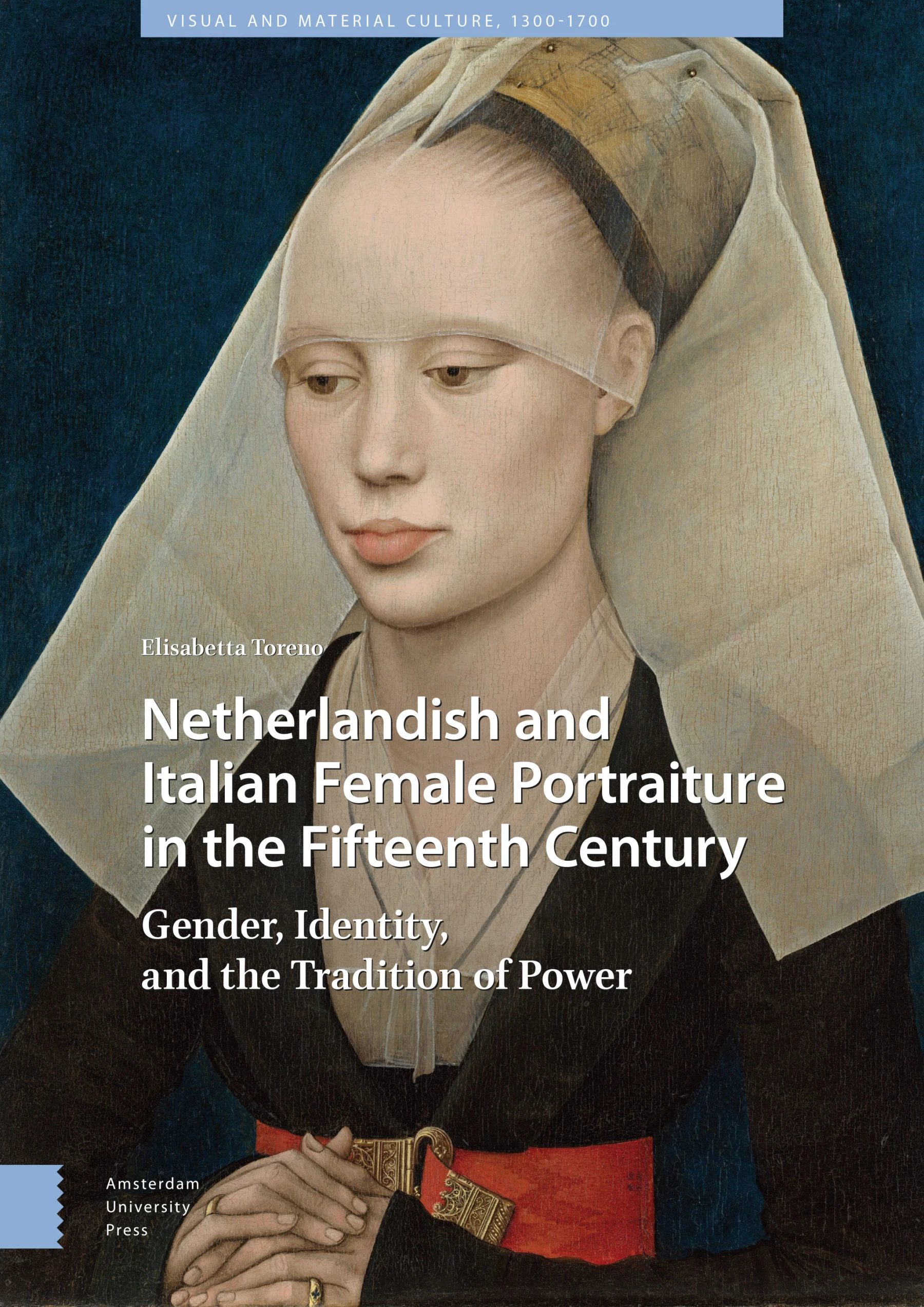
Netherlandish and Italian Female Portraiture in the Fifteenth Century – Gender, Identity, and the Tradition of Power
Elisabetta Toreno
This book investigates the aesthetic and conceptual characteristics of fifteenth-century female portraiture on panel. Portraits of women increased substantially during this century. They formed part of a material and a visual culture borne out of the rapid rise of an oligarchy from entrepreneurial activities that was especially advanced in the urbanised territories of Italy and Flanders.
For this reason, the portraits in this book are by Netherlandish and Italian painters. They are simultaneously illustrative of the emancipation of the genre from its medieval idiom, and of the responses to the matrix of patriarchy, under which society was organised. Patriarchy is an androcentric structure that places women in a paradoxical situation of legal and social disenfranchisement on the account of purported psychophysical inadequacy, whilst making them the catalysts, through arranged marriages, for the success of the spheres of power, which are controlled by men. Thus, these portraits are also a window into women’s lives in this structure.
This book is the first systematic study of their sign-system and of the feminine experience of seeing and being seen, at the intersection of disciplines that include art history, anthropology, legal history, philosophy. The surprising results suggest new interpretations of form and function in female portraiture, women’s active role in the imaging process and the early instances of a pro-women ideology.
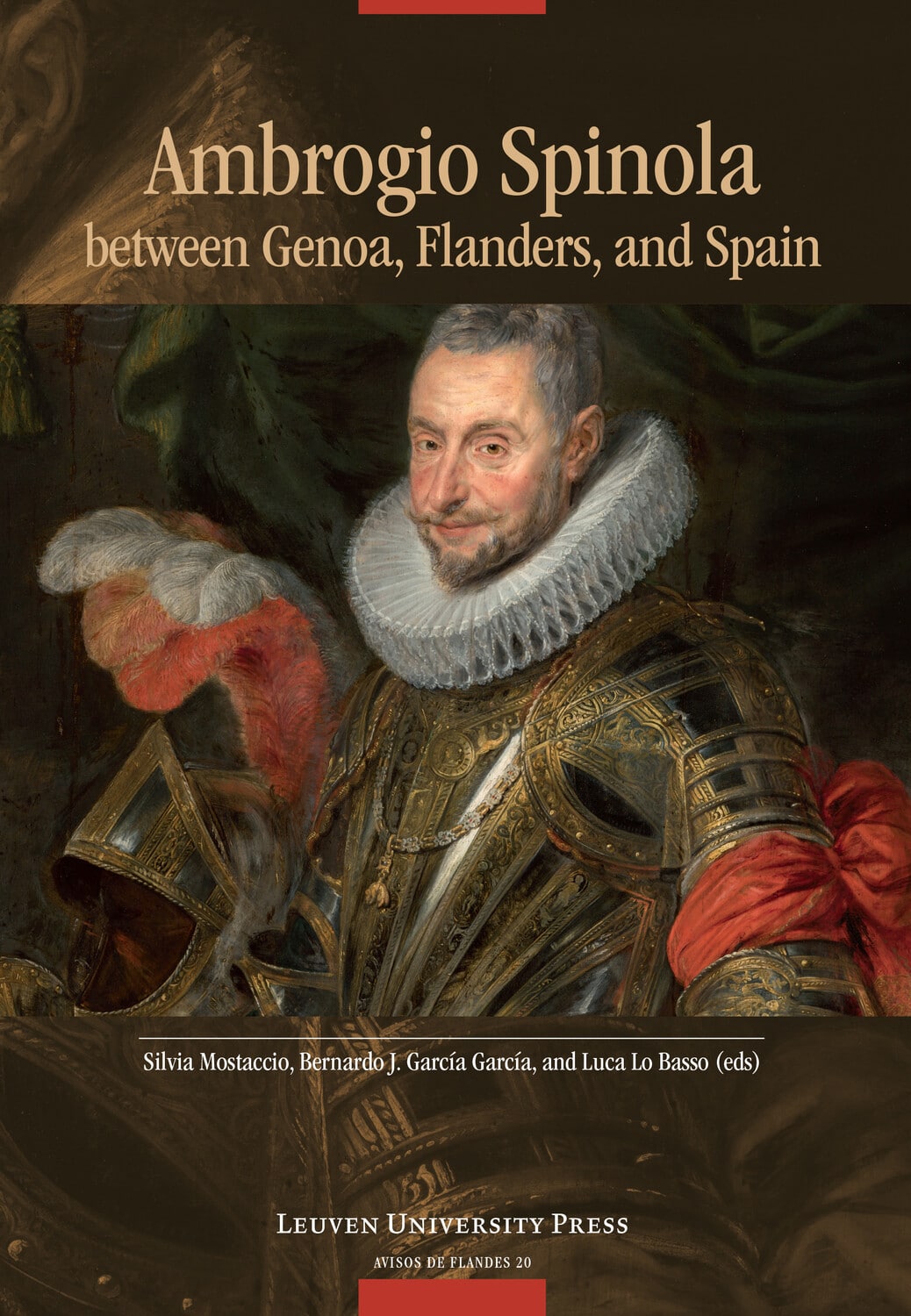
Ambrogio Spinola between Genoa, Flanders, and Spain
Silvia Mostaccio, Bernardo J. García García, and Luca Lo Basso (eds.)
Many of the most significant studies devoted to Ambrogio Spinola have focused on one particular aspect of his life: his successful military career. This volume, through its interdisciplinary and cultural approach, breaks open this all too narrow perspective and expands our understanding of Spinola and his world.
As a great military strategist and Catholic knight, entrepreneur in the international finance market, courtier, and diplomat, Spinola was certainly a Genoese, but he was also a member of the transnational Iberian elite, to which he linked his fate and that of his children. His life’s journey between Italy, Flanders, and Spain, and the reinterpretations of his life by his contemporaries in art, literature, and the press, give us the opportunity to reflect on the multiple identities and the physical and mental wanderings of many Europeans of the Early Modern Age. Ambrogio Spinola offers an example of humanity that is impossible to capture in a single reading and is much more contemporary than we can imagine.
Ambrogio Spinola between Genoa, Flanders, and Spain allows the reader to better understand not only his military activities, but also (and above all) the family, social and political foundations of his successful career, as well as the various forms of art and communication (literature, architecture, paintings, sculptures, engravings, newspapers, etc.), which were used to celebrate him both during his life and beyond.
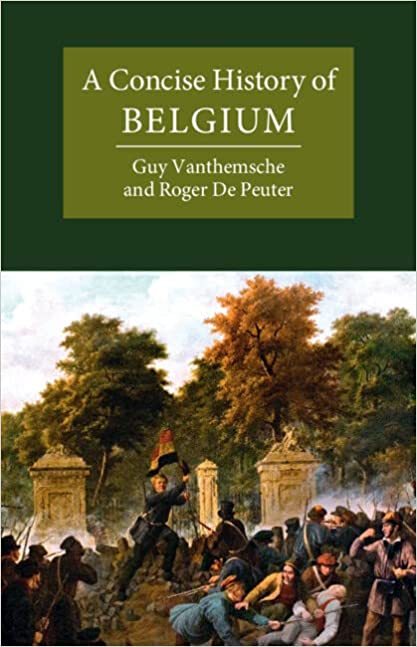
A Concise History of Belgium
Guy Vanthemsche & Roger De Peuter
The small and densely populated nation of Belgium has played an important role in the history of Europe and other continents, especially Africa. It was a pioneering force in industry, trade, and finance during the Middle Ages, through early modern times and into the nineteenth and twentieth centuries. It introduced innovative political regimes and played a leading role in the creative arts. Yet this rich past is not widely known.
This introductory history offers an accessible and rigorous overview of this small but important West-European country, synthesizing Belgium’s main economic, social, political, and cultural developments from pre-Roman times until today.
Today, this nation-state, born in 1830, is well-known for the rivalries between its two main language communities, and as a result is often considered a fragile or even an artificial political construct. This systematic chronological analysis of both present-day Belgium and the polities that preceded it throws fresh light on this controversial issue and demonstrates Belgium’s enduring importance and influence.
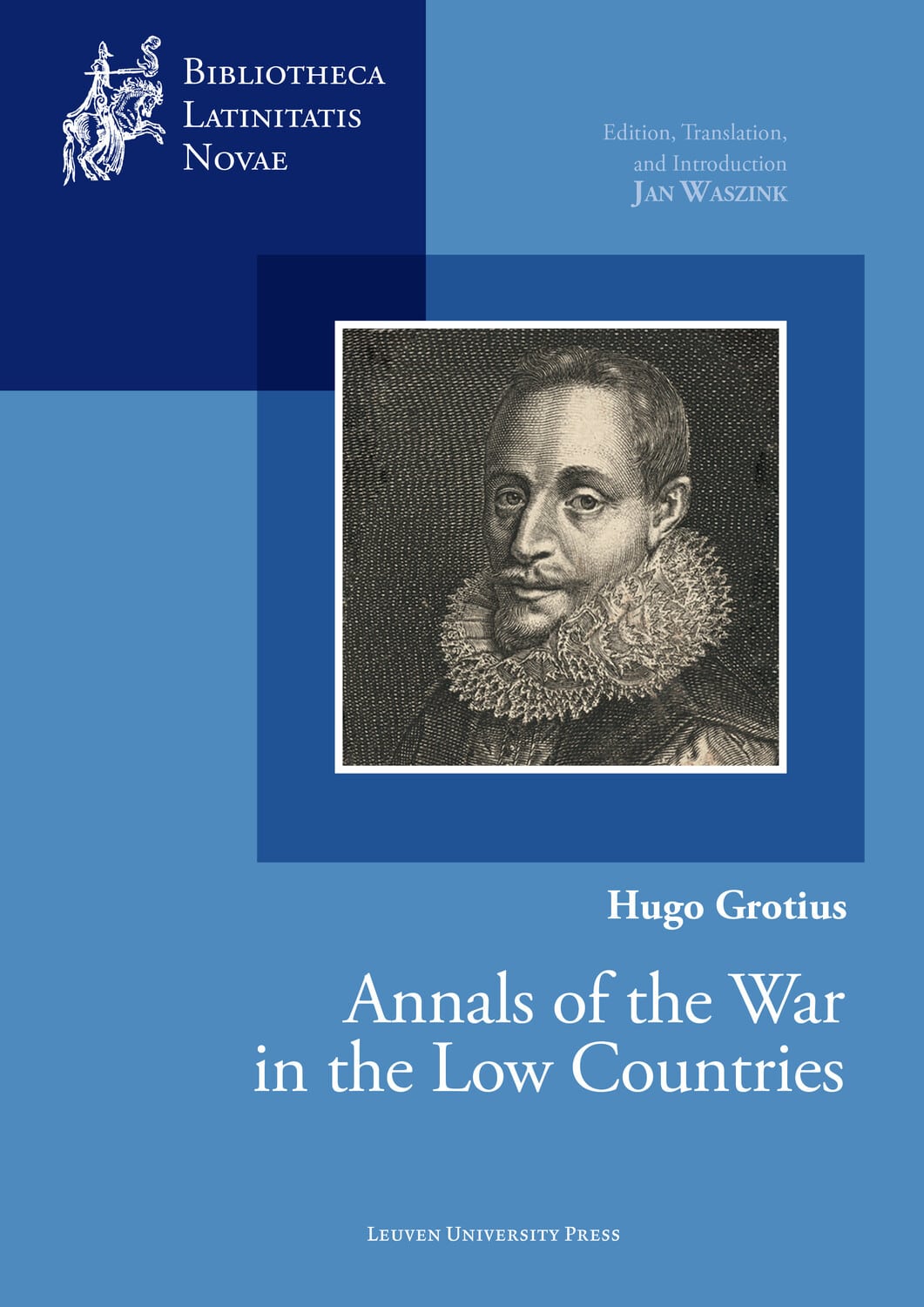
Hugo Grotius, Annals of the War in the Low Countries
Jan Waszink (ed.)
The Annals of the War in the Low Countries is one of Hugo Grotius’ lesser-known works. Grotius expresses a contrarian view of the early revolt, which he presents not as a united battle for the true faith and the ancient liberties of the land but as a protracted and painful struggle, not only with the great power of Spain, but also with discord, selfishness and religious fanaticism among the Dutch.
To convey this complex and controversial vision of the foundational years of the Dutch Republic, Grotius chose the worldview and the prose style of the Roman historian Cornelius Tacitus as his model. His commissioners, however – the States of Holland – did not publish the work when it was finished in 1612; it appeared in print posthumously in 1657.
This is the first edition of Grotius’ then-influential and well-known Annals of the Dutch Revolt since its initial publication. It presents a critical edition of the Latin text, a fresh modern English translation, and an introduction which covers all aspects of the work, from its conception to its modern reception, underlining the importance of reason of state for Grotius’ thought in general.
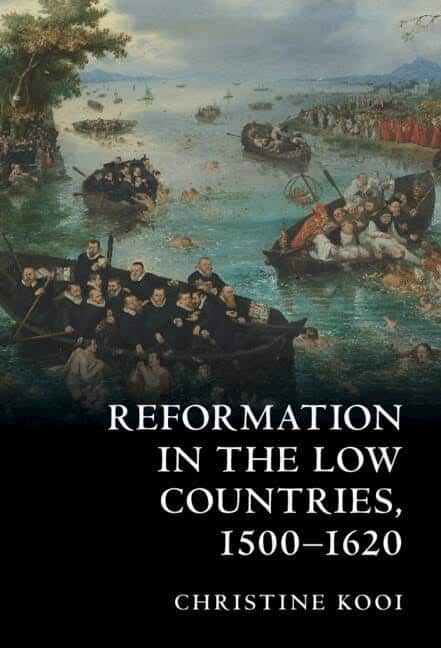
Reformation in the Low Countries, 1500-1620
Christine Kooi
This accessible general history of the Reformation in the Netherlands traces the key developments in the process of reformation – both Protestant and Catholic – across the whole of the Low Countries during the sixteenth century. Synthesizing fifty years’ worth of scholarly literature, Christine Kooi focuses particularly on the political context of the era: how religious change took place against the integration and disintegration of the Habsburg composite state in the Netherlands.
Special attention is given to the Reformation’s role in both fomenting and fuelling the Revolt against the Habsburg regime in the later sixteenth century, as well as how it contributed to the formation of the region’s two successor states, the Dutch Republic and the Southern Netherlands.
Reformation in the Low Countries, 1500-1620 is essential reading for scholars and students of early modern European history, bringing together specialized, contemporary research on the Low Countries in one volume.
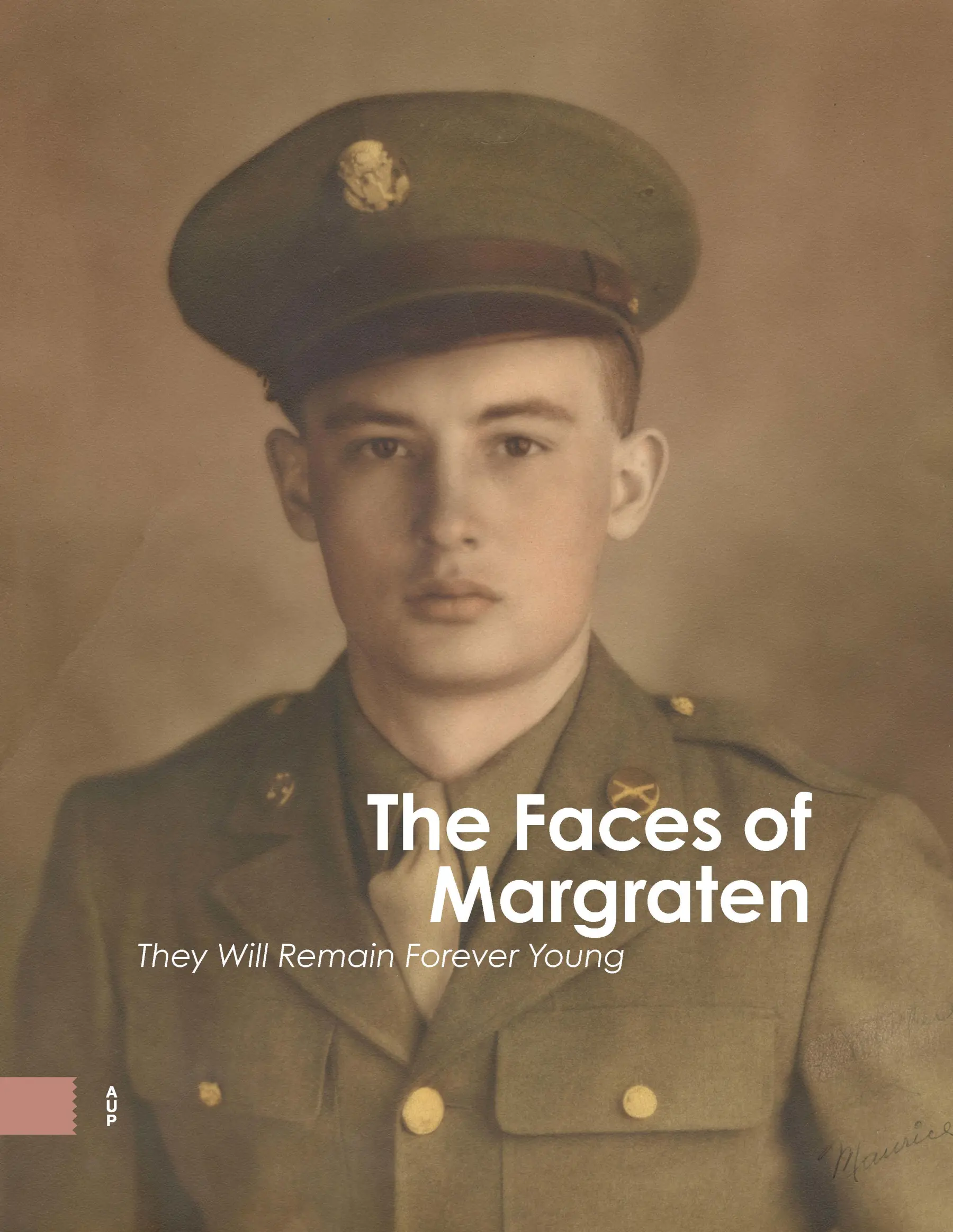
The Faces of Margraten – They Will Remain Forever Young
Stichting Fields of Honor
In the rolling hills of the Limburg Province, near the village of Margraten, they slowly loom up, row after row: thousands of white marble crosses and Stars of David. They mark the final resting place of American soldiers who died fighting to liberate the Netherlands during World War II. While the headstones provide the names and ages of those lost, they cannot tell us who these soldiers were, what their lives were like, or who they left behind. Nor can the peace and quiet at the only American military cemetery in the Netherlands reflect the harrowing experience and violent final moments of the men and women who forever rest here.
Through hundreds of personal photographs and more than 250 stories, The Faces of Margraten gives these soldiers faces and voices again, telling not only the history of World War II and the ending of the German occupation of the Netherlands, but also revealing how and why the Dutch people have never forgotten their liberators. Concluding with a list of all the soldiers’ names, this commemorative book stands as a testament to the service and sacrifice of the more than 10,000 Americans buried or memorialized as missing in Margraten.
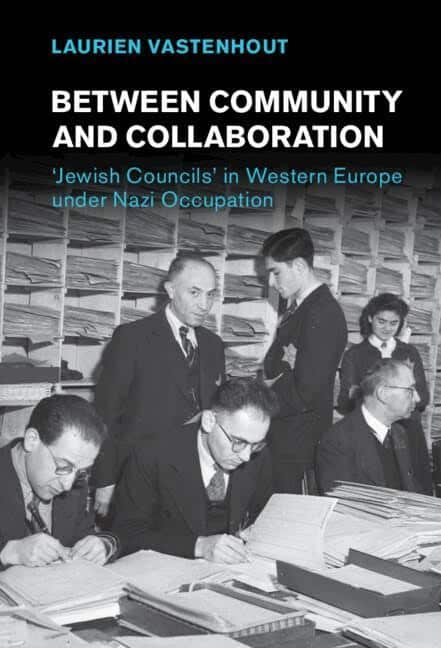
Between Community and Collaboration – ‘Jewish Councils’ in Western Europe under Nazi Occupation
Laurien Vastenhout
The first comprehensive, comparative study of the ‘Jewish Councils’ in the Netherlands, Belgium and France during Nazi rule. In the postwar period, there was extensive focus on these organisations’ controversial role as facilitators of the Holocaust. They were seen as instruments of Nazi oppression, aiding the process of isolating and deporting the Jews they were ostensibly representing. As a result, they have chiefly been remembered as forms of collaboration.
Using a wide range of sources including personal testimonies, diaries, administrative documents and trial records, Laurien Vastenhout demonstrates that the nature of the Nazi regime, and its outlook on these bodies, was far more complex. She sets the conduct of the Councils’ leaders in their prewar and wartime social and situational contexts and provides a thorough understanding of their personal contacts with the Germans and clandestine organisations.
Between Community and Collaboration reveals what German intentions with these organisations were during the course of the occupation, and allows for a deeper understanding of the different ways in which the Holocaust unfolded in each of these countries.
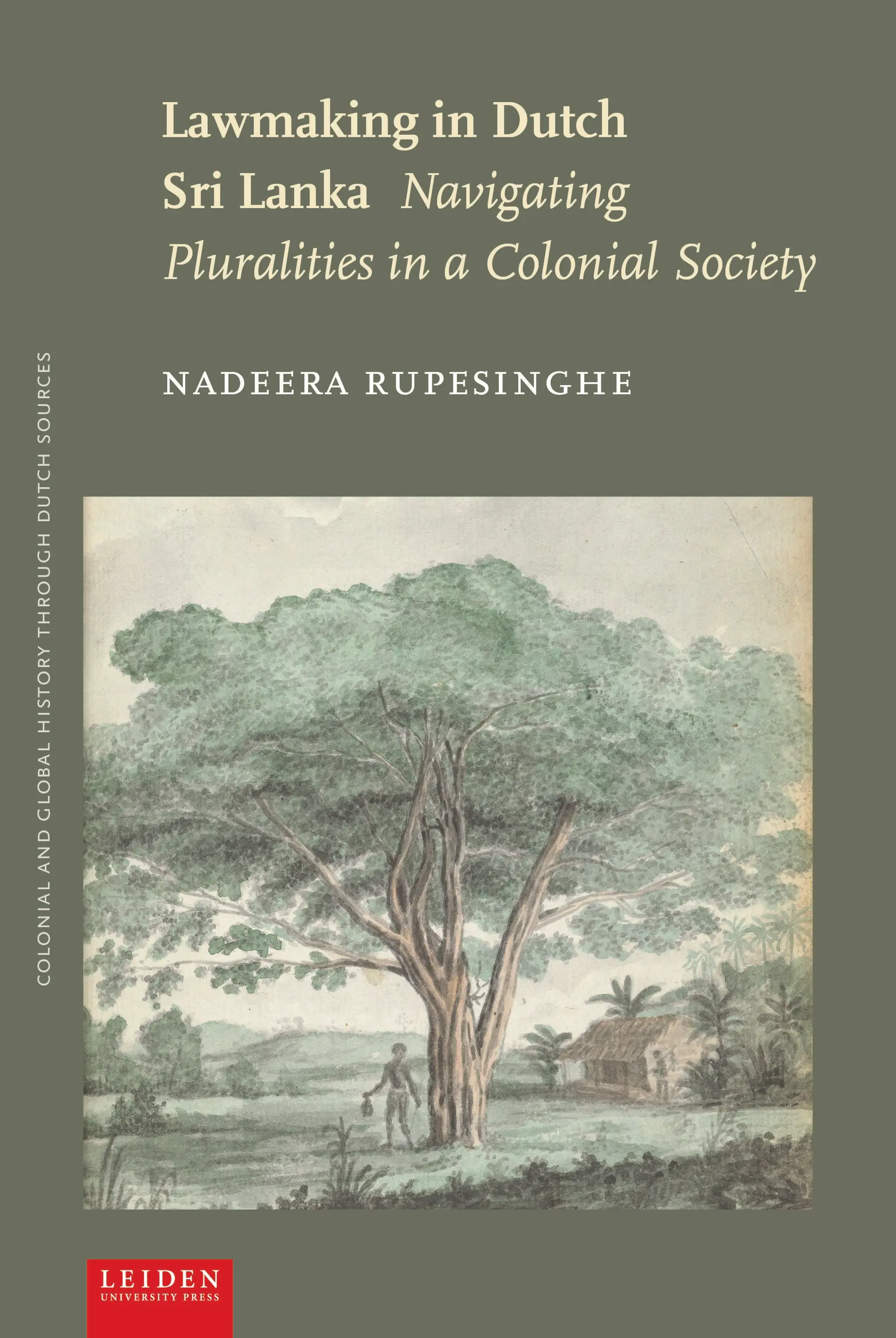
Lawmaking in Dutch Sri Lanka – Navigating Pluralities in a Colonial Society
Nadeera Rupesinghe
Navigating Pluralities marks a break in understanding the history of Roman-Dutch law in Sri Lanka. Methodologically, it challenges socio-legal studies that concentrate on major jurisdictional conflicts alone, emphasizing the lived experience of everyday practices of judicial forums. It uncovers the navigation of plural practices in the Landraad, a judicial forum set up by the Dutch East India Company in seventeenth-century Sri Lanka.
A choice of laws came into play in that forum, that choice being significant at varying degrees for different areas of the law such as evidence, inheritance, land, and marriage law.
While there was inevitable conflict, the local normative order was as much a social fact for the early colonial rulers as Roman-Dutch law. This is contrary to the received wisdom of the ages that Roman-Dutch law was imposed on the Sinhalese of the maritime provinces under Dutch control. When translated into everyday lives, such adoption of plural practices could rebound on coloniser and colonised in unexpected ways, revealing the complexities of colonial law in practice.
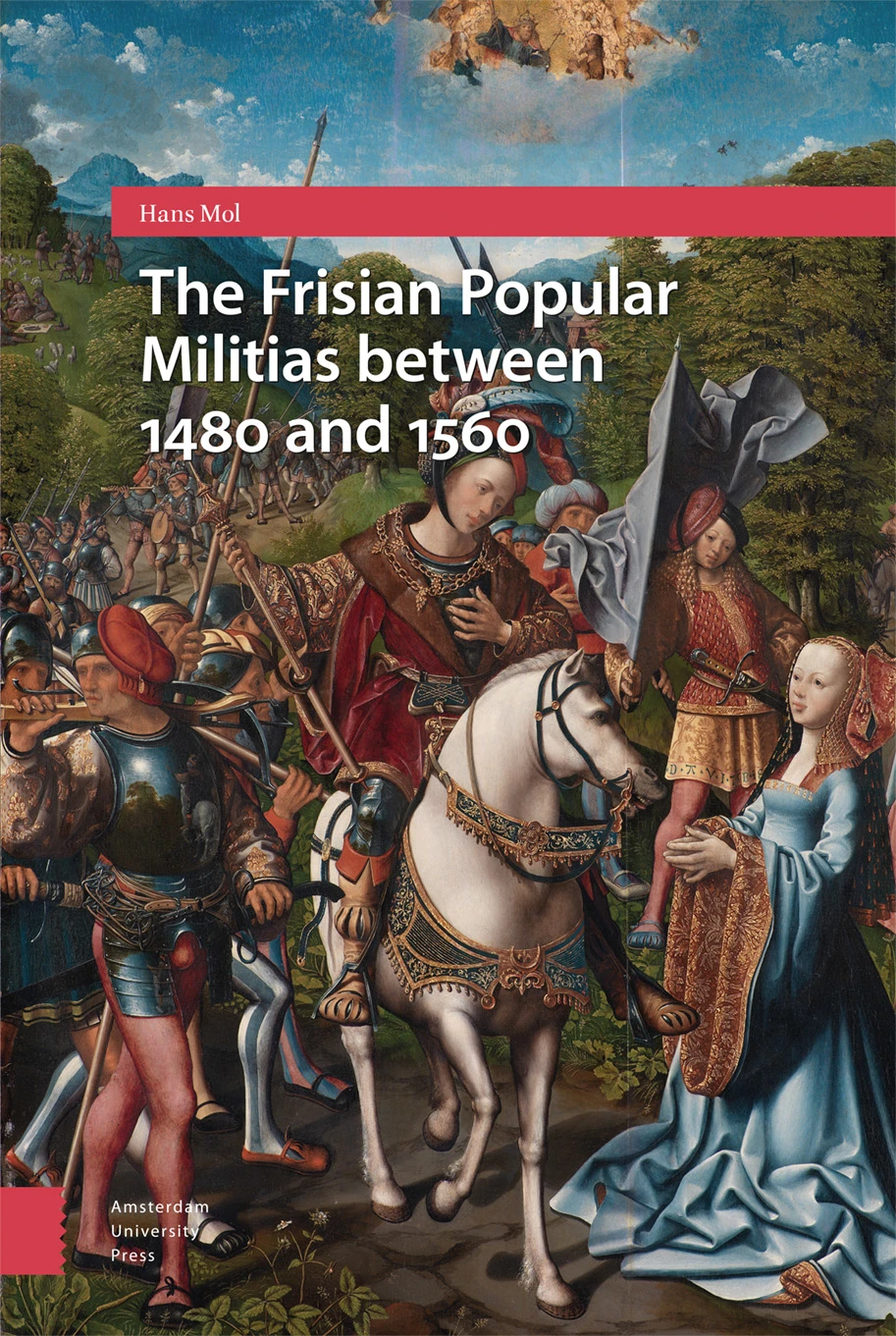
The Frisian Popular Militias between 1480 and 1560
Hans Mol
In the late Middle Ages and early modern times, able-bodied men between sixteen and sixty years of age were called upon all over Europe to participate in raids, sieges and battles, for the defense of home and hearth. Because these men are regarded as amateurs, military historiography has paid little attention to their efforts. This book aims to change that by studying the mobilization, organization and weaponry of popular levies for a time when war was frequently waged between states in the making.
Central to the book is the composition and development of the rural and urban militias in Friesland, dissected in a comparative Northwest European perspective, along with an examination of why the self-defense of the Frisians ultimately failed in their efforts to preserve their political autonomy. The main source is an extensive series of muster lists from 1552 that have survived for six cities and fourteen rural districts.
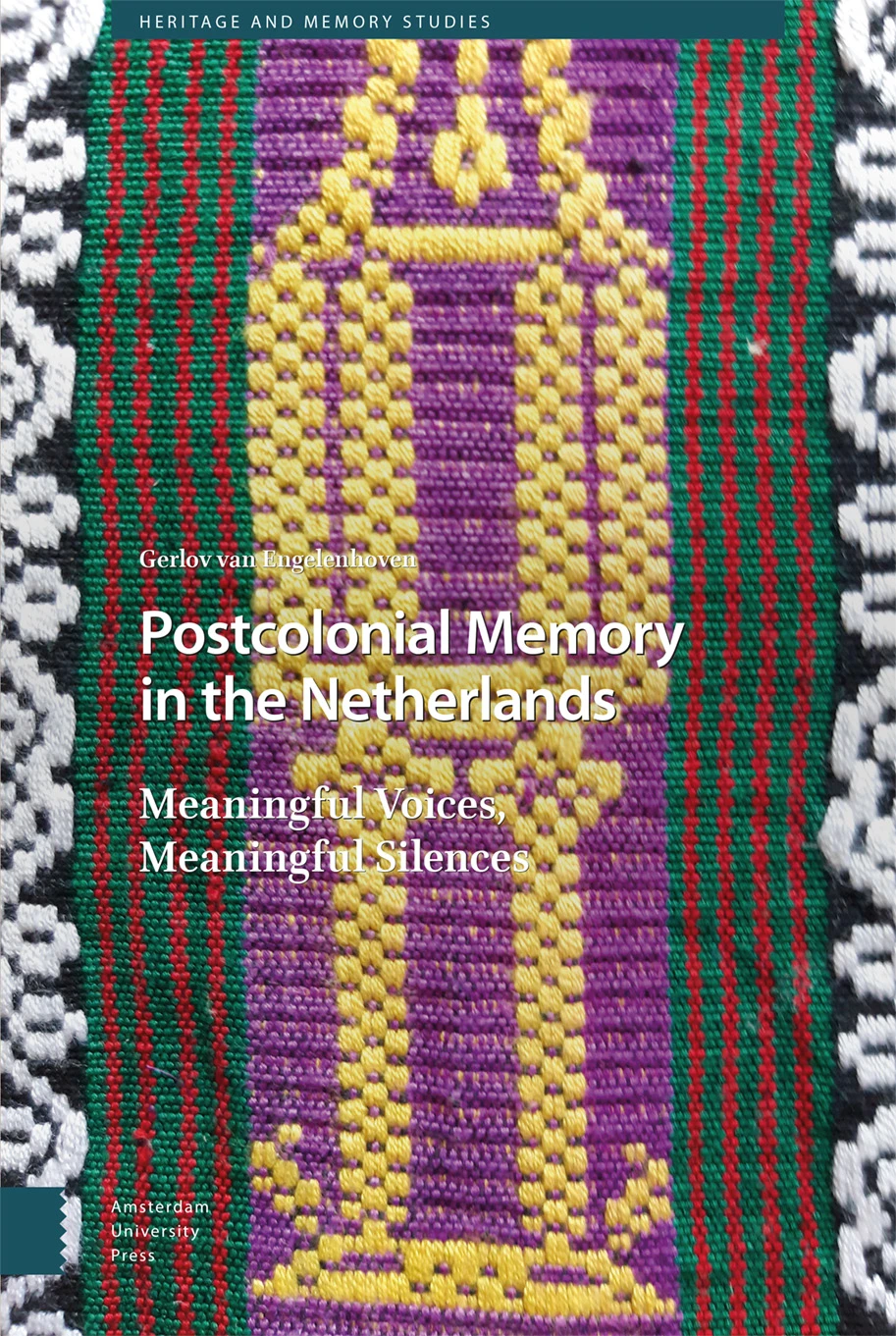
Postcolonial Memory in the Netherlands – Meaningful Voices, Meaningful Silences
Gerlov van Engelenhoven
This book is about postcolonial memory in the Netherlands. This term refers to conflicts in contemporary society about how the colonial past should be remembered. The question is often: who has the right or ability to tell their stories and who do not? In other words: who has a voice, and who is silenced?
As such, these conflicts represent a wider tendency in cultural theory and activism to use voice as a metaphor for empowerment and silence as voice’s negative counterpart, signifying powerlessness. And yet, there are voices that do not liberate us from, but rather subject us to power. Meanwhile, silence can be powerful: it can protect, disrupt and reconfigure.
Throughout this book, it will become clear how voice and silence function not as each other’s opposites, but as each other’s continuation, and that postcolonial memory is articulated through the interplay of meaningful voices and meaningful silences.
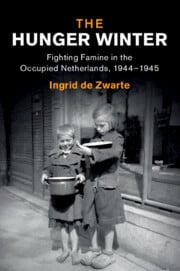
The Hunger Winter – Fighting Famine in the Occupied Netherlands, 1944–1945
Ingrid de Zwarte
In this pioneering study, Ingrid de Zwarte examines the causes and demographic impact of the Dutch ‘Hunger Winter’ that occurred in the Netherlands during the final months of German occupation in the Second World War. She offers a comprehensive and multifaceted view of the socio-political context in which the famine emerged and considers how the famine was confronted at different societal levels, including the responses by Dutch, German and Allied state institutions, affected households, and local communities.
Contrary to highly-politicized assumptions, she argues that the famine resulted from a culmination of multiple transportation and distribution difficulties. Although Allied relief was postponed for many crucial months and official rations fell far below subsistence level, successful community efforts to fight the famine conditions emerged throughout the country.
She also explains why German authorities found reasons to cooperate and allow relief for the starving Dutch.
With these explorations, The Hunger Winter offers a radically new understanding of the Dutch famine and provides a valuable insight into the strategies and coping mechanisms of a modern society facing catastrophe.
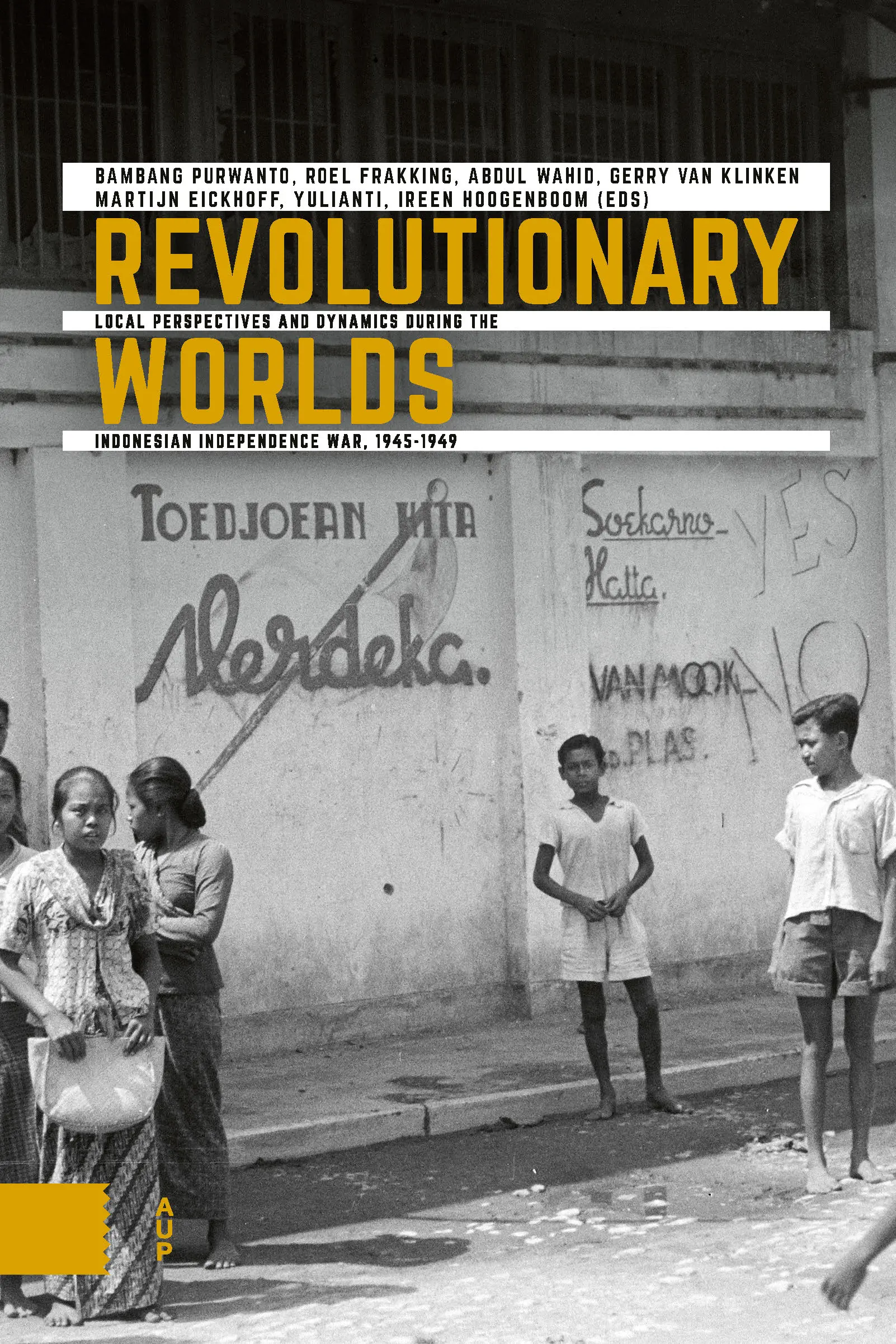
Revolutionary Worlds – Local Perspectives and Dynamics during the Indonesian Independence War, 1945-1949
Revolutionary Worlds looks at the Indonesian revolution (1945-1949) from a local and regional perspective. With seventeen contributions, Indonesian and Dutch researchers bring to life the revolutionary world from widely differing perspectives. The authors explain how Indonesian, Chinese, Indian and Eurasian civilians, fighters, farmers and officials experienced and shaped the often volatile period between 1945 and 1950. The book focuses on different ideas of independence, survival strategies, mobilization, minorities, contestation of authority and the use of force against the backdrop of Indonesian and Dutch authorities’ efforts to gain or maintain control.
Bringing together two national historiographical traditions which have long remained largely separate, Revolutionary Worlds is the result of a collaboration between the Indonesian research project Proklamasi Kemerdekaan, Revolusi dan Perang di Indonesia (‘Proclamation of Independence, Revolution and War in Indonesia’, Universitas Gadjah Mada, Yogyakarta) and the Dutch research group of the Regional Studies project, under the umbrella of the research programme Independence, Decolonization, Violence and War in Indonesia, 1945-1950.
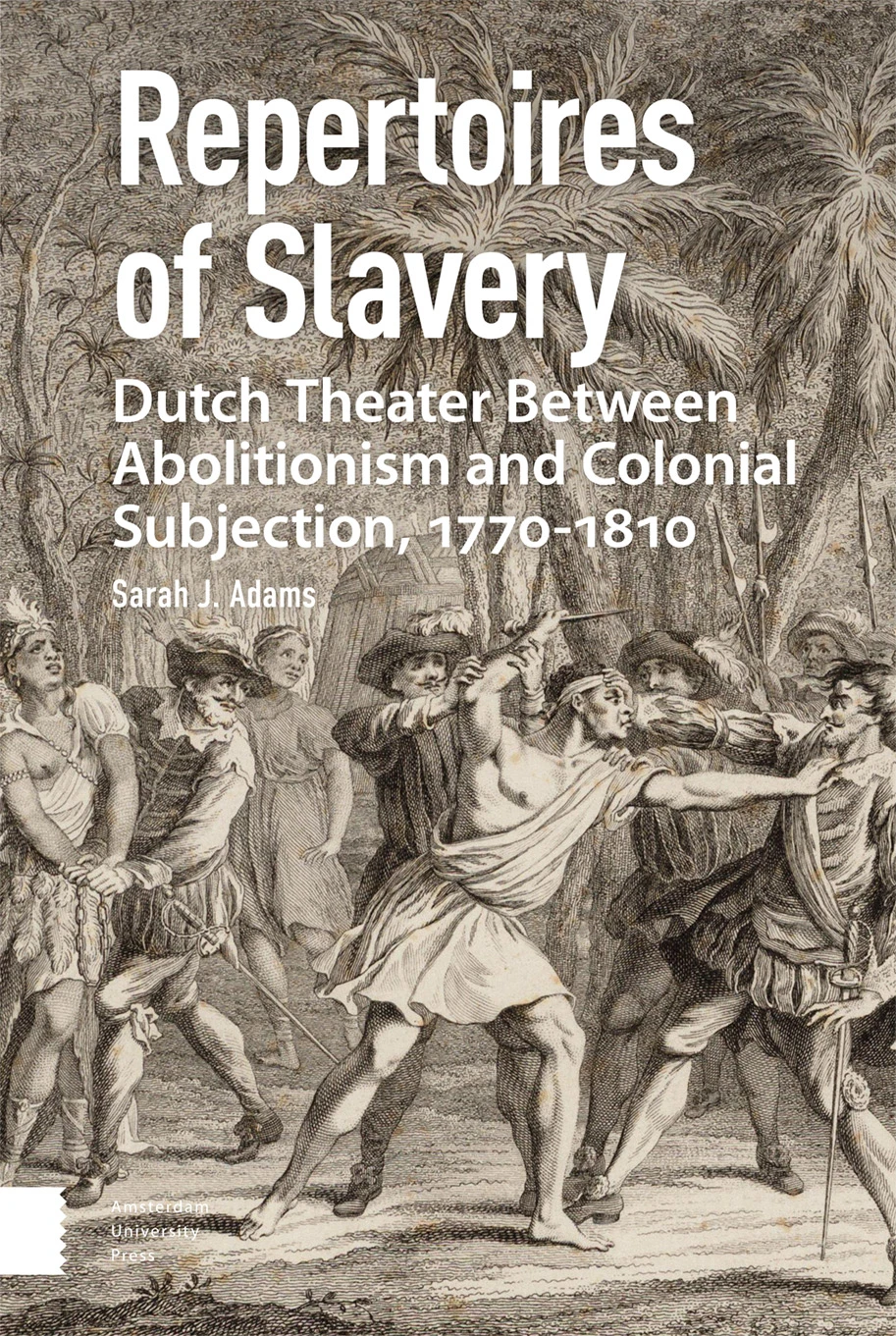
Repertoires of Slavery – Dutch Theater Between Abolitionism and Colonial Subjection, 1770-1810
Sarah Adams
Through the lens of a hitherto unstudied repertoire of Dutch abolitionist theatre productions, Repertoires of Slavery prises open the conflicting ideological functions of antislavery discourse within and outside the walls of the theatre and examines the ways in which abolitionist protesters wielded the strife-ridden question of slavery to negotiate the meanings of human rights, subjecthood, and subjection.
The book explores how dramatic visions of antislavery provided a site for (re)mediating a white metropolitan—and at times a specifically Dutch—identity. It offers insight into the late-eighteenth- and early-nineteenth-century theatrical modes, tropes, and scenarios of racialised subjection and considers them as materials of the “Dutch cultural archive,” or the Dutch “reservoir” of sentiments, knowledge, fantasies, and beliefs about race and slavery that have shaped the dominant sense of the Dutch self-up to the present day.


